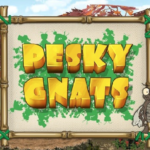
Leen Vereenooghe summarises a recent review paper that presents the state of the evidence and future directions for digital mental health and people with intellectual disabilities.
[read the full story...]
Leen Vereenooghe summarises a recent review paper that presents the state of the evidence and future directions for digital mental health and people with intellectual disabilities.
[read the full story...]
Lucy Simons invites YOU to tell us what you think are the most important questions about using digital technology for mental health.
There are also some fab prizes up for grabs, so don’t miss out!
[read the full story...]
Today is the start of Digital Mental Health week, so look out for blogs, webinars, podcasts and loads of social media on the latest digital mental health research #DigiMHweek!
We start with Sarah Rowe blogging about a qualitative study that explores users’ experiences of an online intervention for bipolar disorder.
[read the full story...]
It’s #WorldMentalHealthDay today and the theme this year is promoting awareness of mental health in the workplace.
We’re getting in on the act with Chris O’Sullivan looking in detail at a recent systematic review of web-based psychological interventions delivered in the workplace, to improve employee wellbeing and effectiveness.
[read the full story...]
Jack Barton publishes his debut elf blog on the huge OASIS randomised controlled trial, which explores the effects that improved sleep can have on our mental health.
[read the full story...]
Leen Vereenooghe presents the results of an RCT of computerised cognitive behavioural therapy for people with learning disabilities, featuring the computer game “Pesky gNATs: The Feel Good Island”.
[read the full story...]
Natalie Nelissen from mHabitat publishes her debut elf blog on a recent systematic review of mental health apps for young people, which highlights the current dearth of reliable research to support the efficacy and safety of mobile apps.
[read the full story...]
Alan Underwood reports on the new OCTET trial published last week, which fails to find any support for the use of low-intensity guided self-help or computerised CBT for people with obsessive compulsive disorder (OCD).
[read the full story...]
Jazz Croft publishes her debut elf blog on a recent systematic review and meta-analysis of digital interventions to treat the symptoms of post traumatic stress.
[read the full story...]
Andres Fonseca reviews a recent meta-analysis that explores whether smartphone mental health interventions can reduce the symptoms of anxiety.
[read the full story...]